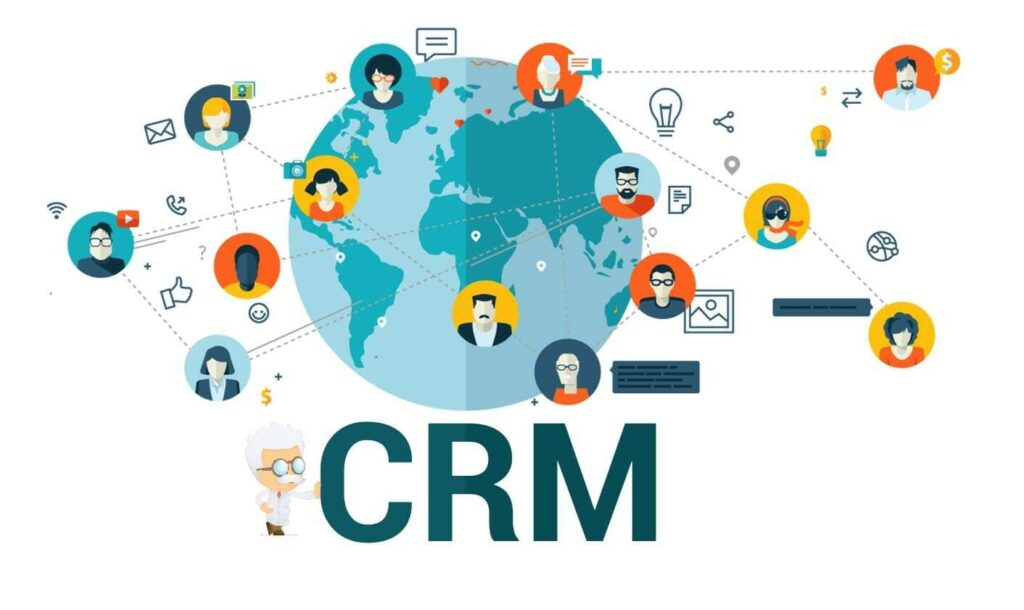Customer Relationship Management (CRM) is a critical component of any successful business. It helps companies manage customer interactions, track leads, and nurture relationships. As technology continues to evolve, so does the CRM landscape.
In 2023, we can expect several exciting developments in the CRM customization space. These developments will be driven by the need for businesses to provide more personalized and engaging customer experiences and the increasing importance of data and analytics.

Key Insights from CRM Trends
Industry Growth: The CRM industry is on a rapid trajectory and is projected to achieve a remarkable $80 billion in revenue by 2025, signifying its increasing importance in business strategies.
Widespread Adoption: An impressive 91% of organizations with more than ten employees have embraced CRM systems. This demonstrates the widespread recognition of CRM’s ability to enhance operational efficiency and communication within companies.
Underutilized Strategy: Forbes’ report indicates that sales teams typically allocate just 18% of their time to developing CRM strategies. This statistic highlights an opportunity for companies to better harness CRM’s potential as a foundational sales program.
Sales Reporting: A substantial 82% of successful companies have CRM integration software for sales reporting, underscoring its significance in optimizing sales processes and decision-making.
Sales Improvement: Leading marketers believe that CRM systems can boost sales performance by up to 29%, emphasizing the pivotal role of CRM in driving revenue growth.
Rephrased Statement: If your primary business goal is growth, CRM software is not merely an option; it should be your foremost objective to enhance your business opportunities and performance.
CRM Trends to Watch in 2023

1. AI-powered personalization
Artificial intelligence (AI) is transforming the CRM landscape. AI-powered CRM systems can help businesses personalize customer experiences at a scale. For example, AI can be used to:
Segment customers based on their needs and preferences
Predict customer behavior
Generate personalized marketing campaigns and product recommendations
Automate customer support tasks
By delivering personalized experiences, businesses can build stronger customer relationships and increase customer loyalty.
2. Seamless omnichannel experience
Customers expect to be able to interact with businesses across a variety of channels, including email, social media, phone, and live chat. CRM systems that provide a seamless omnichannel experience give businesses a competitive advantage.
Omnichannel CRM systems allow businesses to track customer interactions across all channels and provide a consistent experience, regardless of how the customer chooses to interact. This helps businesses understand their customers better by providing them with the best possible experience.
3. Mobile CRM on the go
More and more salespeople are working remotely and on the go. Mobile CRM solutions allow salespeople to access customer data and manage customer interactions from anywhere.
Mobile CRM solutions can help salespeople to:
Stay up to date on customer interactions
Manage leads and opportunities
Schedule meetings and appointments
Close deals faster
By using a mobile CRM solution, salespeople can be more productive and efficient, even when they are away from the office.
4. Social media insights for better engagement
Social media is a powerful tool for businesses to connect with their customers and build relationships. CRM systems that integrate with social media platforms can help businesses get more value from their social media presence.
Social media CRM platforms can help businesses to:
Track customer conversations on social media
Identify influencers and brand advocates
Monitor customer sentiment
Launch social media marketing campaigns
Businesses can better understand their customers and engage with them meaningfully using a social media CRM platform,
5. Real-time analytics for instant decision-making
In today’s fast-paced business environment, businesses need to be able to make decisions quickly. CRM systems that provide real-time analytics can help businesses to make better decisions faster.
Real-time analytics can provide businesses with insights into customer behavior, sales trends, and other key metrics. This information can be used to make informed decisions about everything from pricing to marketing campaigns to product development.
By embracing these CRM trends, businesses can stay ahead of the curve and improve their customer relationships.

Here are some tips for implementing these CRM trends in your business:
Start by assessing your current CRM system. What features does it have? What features do you need? Once you have a good understanding of your current system, you can start to identify areas where you can improve.
Look for CRM systems that offer the features you need. There are many different CRM systems available, so it’s chosen one that offers the features you need to meet your specific business goals.
Integrate your CRM system with other business systems. CRM systems can be integrated with other business systems, such as marketing automation platforms, e-commerce platforms, and customer support systems. This integration can help to streamline your workflow and improve efficiency.
Train your employees on usage of the CRM system. It’s important to train your employees on how to use the CRM system effectively. This will help them to get the most out of the system and provide better customer experiences.
To Sum Up,
By following these tips, you can implement the latest CRM trends in your business and improve your customer relationships.
For CRM support, implementation or customization, contact Werq Labs.
